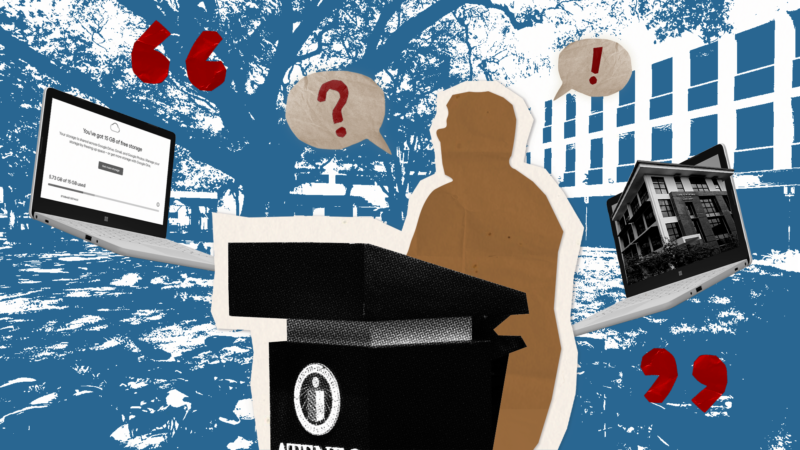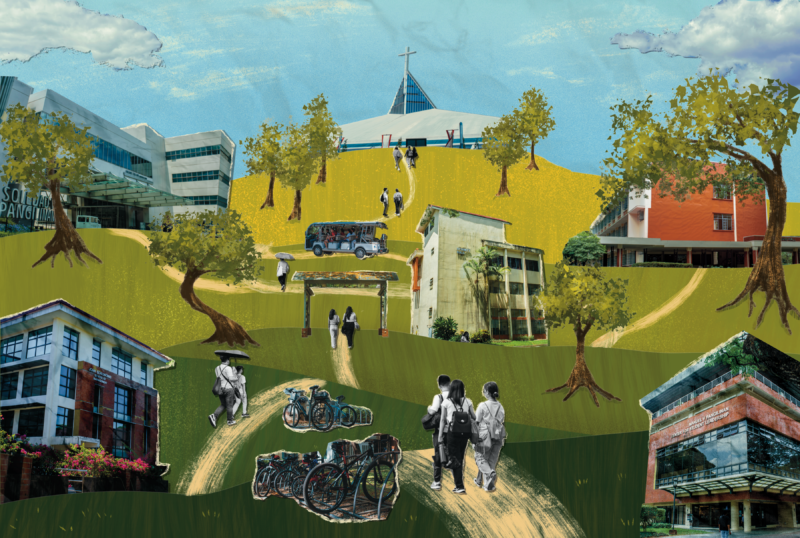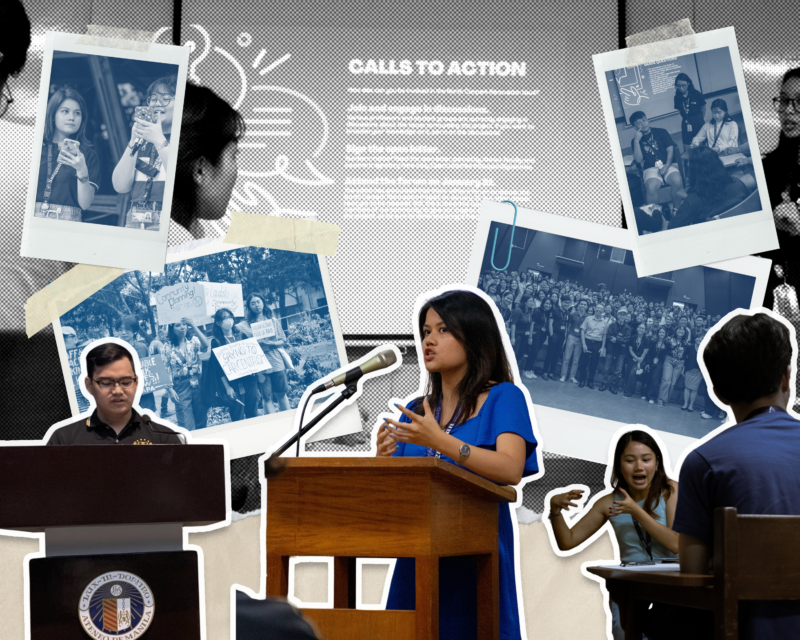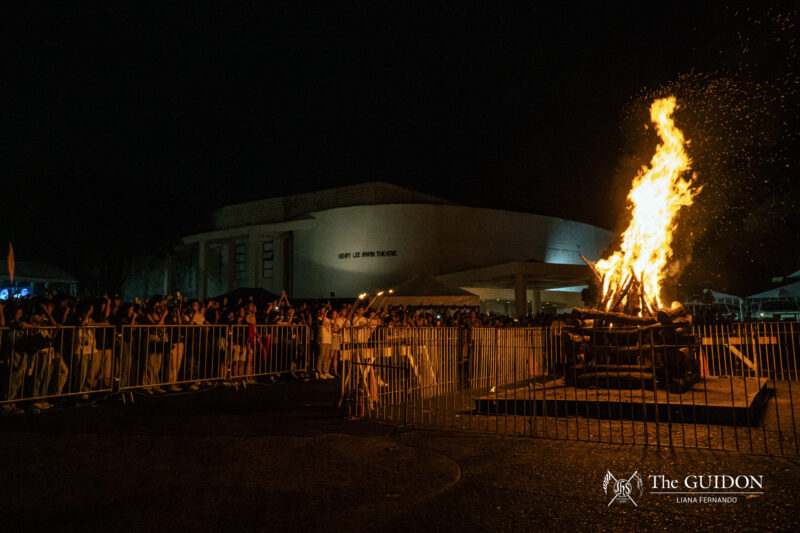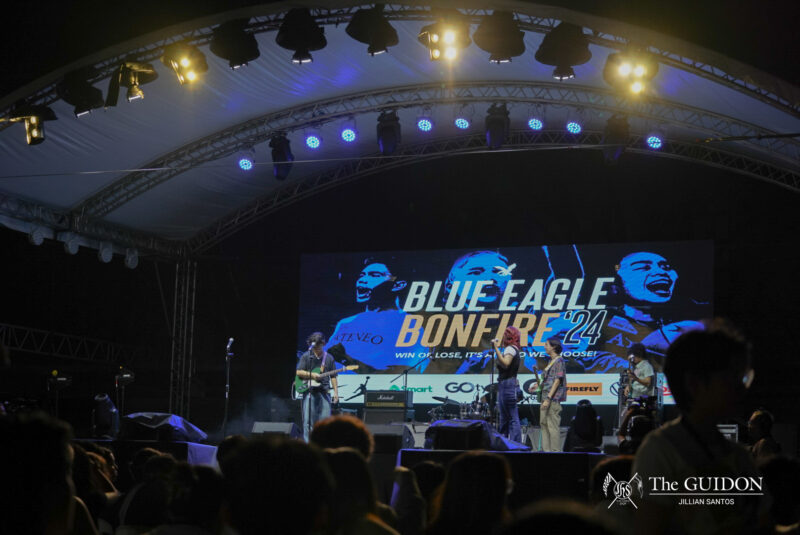GAUGING THE Ateneo community’s response and readiness to flexible learning setups, the Ateneo administration formally launched its study on the Digital Days concept last February 4. The memo detailed these days as periods where students and faculty could uniformly go online for more ordered online learning. Notably, dry runs for these were conducted last March 15 and April 4.
Leading the study, School of Social Sciences Dean Czarina Saloma-Akpedonu, PhD further noted that the community’s current hybrid setup is “unsustainable” as online days for courses are scheduled independently. In this way, she asserted that Digital Days seeks to act as an alternative and regulation to the present learning system.
Conceptualizing Digital Days
Further contextualizing the study, Vice President for Higher Education (VPHE) Maria Luz Vilches, PhD mentioned that faculty and students were “clamoring” for onsite teaching and learning during the pandemic, as most felt like they were not learning properly due to the online setup.
“The physical presence of classmates and teachers makes them feel that learning is real and thus, being onsite has more of a premium value,” Vilches stated.
Given the issue, Saloma-Akpendonu stated that a team of faculty volunteers had been dedicated to initially conceptualizing Digital Days, following through with multiple consultations before its announcement. She rationalized that the dry runs were meant to explore the optimum teaching and learning conditions for courses with an online component.
Particularly, throughout March and April, Saloma-Akpendonu led the faculty volunteers in collecting feedback from the dry runs and data from studies showcasing that students benefit from online learning modality. Once compiled, Saloma-Akpendonu and her team will present the data to the VPHE, where the Ateneo administration will ultimately conclude its feasibility for the next academic year.
Technical difficulties
Despite being created for the benefit of the community, faculty member Mia* mentioned that the dry runs for Digital Days exposed a few limitations. Namely, one main challenge professors may face is ensuring a seamless transition from onsite to online modality as “learning sessions” go by, which professors also discuss with each other.
“The conversations revolved around ways to effectively design the learning session in a blended modality, how to scaffold student learning, strategies to promote engagement, [and the] effective use of digital tools,” she shared.
Adding to Mia’s concerns, Jerold Aquino (1 CS-DGDD) stated that the Digital Days should be “planned ahead,” citing challenges in constantly changing between onsite and online modalities. Aquino further suggested that the slow Wi-Fi connectivity within campus must also be addressed before proper implementation.
As such, Vilches mentioned that the administration has taken steps toward improving Wi-Fi connectivity within campus. Vilches also added that the community will have to “wait and see” for the credible statistics and testimonies from the Digital Days study.
Sharing his hesitations, Jeo Jerick Cafe (4 BS ME) stated that the concept of Digital Days can be “a hassle” for students who still have extracurricular activities onsite. He mentioned that the initiative’s boundaries could be clearer in terms of both academics and student organization activities.
As of now, the administration is tasked with providing the most appropriate scheduling and means for the online modality.
A convenient alternative
While the administration prepares for the feedback and study of Digital Days, History Department Professor Ambeth Ocampo expressed support for the implementation of the concept, comparing its success in other universities.
“We should not throw away online learning [as it] was one of the gains [from] the pandemic and [the] return to fully onsite because some faculty members took the effort to adapt to both modalities,” Ocampo stated.
Ocampo perceived the possible implementation of Digital Days to be advantageous to the faculty as it would spare them from the stress of commuting. He added that it would provide avenues for professors to “continue using the Learning Management System that the university invested in.”
Moreover, Mia mentioned that Digital Days will allow students to maximize the benefits of the online learning modality. She said that this would be helpful for “cases that necessitate the switch to online learning,” such as transport strikes and inclement weather.
Disclosed by Saloma-Akpedonu, results from the Digital Days study are expected to be released by May 31.
*Editors’ Note: The interviewee’s name has been changed at their request to protect her identity and privacy.


